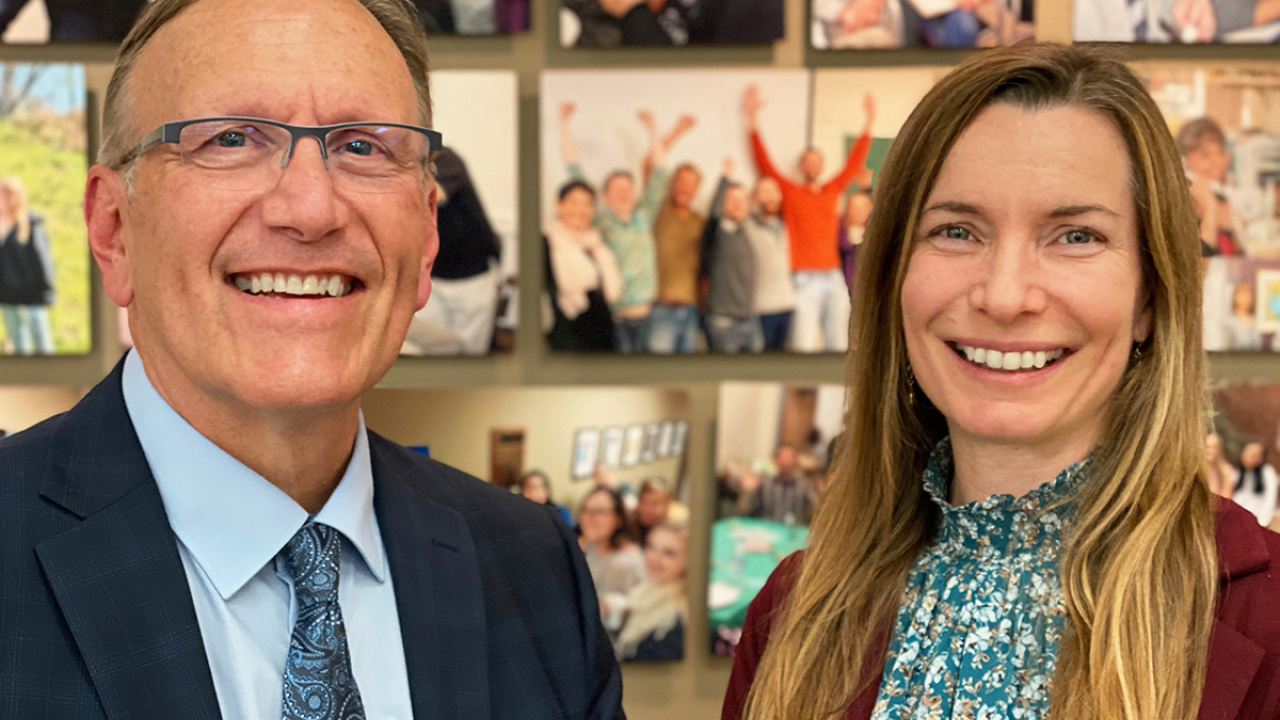
UC Davis Appoints Co-Directors To Guide the Future of the Center for Mind and Brain
UC Davis has just appointed Ron Mangun and Amanda Guyer co-directors of the Center for Mind and Brain (CMB). As co-directors, they will lead the center for the next three years.
For Mangun, a distinguished professor of psychology and neurology, this appointment extends his leadership of the research center he founded. Guyer, a professor of human ecology in the College of Agricultural and Environmental Sciences, has served as CMB associate director since 2017.
CMB is an interdisciplinary research center of faculty researchers who study the human mind and how the brain gives rise to it. Within this broad area of research, the center has affiliates who study child development, aging, disease and many other areas related to the mind and brain.
“We've really helped elevate the reputation of psychology and cognitive neuroscience at UC Davis,” said Mangun. “Going forward, we have an opportunity to build on our strengths, particularly in developmental science, while breaking new ground in emerging research areas and outreach activities.”
Building on a foundation of impact
CMB is an interdiscipliary research program that is home to UC Davis faculty affiliates from departments across campus, including psychology, linguistics, philosophy, neurology, human development and the School of Medicine. Since its founding, CMB faculty affiliates have published more than 1,500 scientific papers and numerous books in the field. Each of the center’s 21 research labs is grant funded.
The center trains undergraduates, graduate students and postdocs who plan to build careers across a number of research fields related to the mind and brain. The center has trained more than 2,000 UC Davis undergraduate research assistants alone.
“Our training exposes students and junior researchers to a broad array of thinking about the mind and brain,” said Guyer. “The center really facilitates connections and collaborations across campus.”
Mangun’s work on the cognitive neuroscience of attention investigates how we perceive, attend, ignore, and become aware of events in our environment. This year marks the end of Mangun’s most recent five-year term. Mangun founded CMB in 2002 and led the center until 2009 when he was appointed dean of social sciences in the College of Letters and Science. Mangun has also served as interim chair of the UC Davis Department of Psychology.
Guyer is a leading expert on child development, particularly how experiences in early childhood affect brain development and mental health. She received her Ph.D. in developmental psychology from Yale and has published extensively on brain development and social and emotional functioning in childhood and adolescence. She is also a faculty affiliate of the Center for Poverty and Inequality Research and the Center for Neuroscience. She has won many awards and honors, including 2014-2019 Chancellor’s Fellow at UC Davis.
Guyer is one of a number of CMB faculty research affiliates who have helped to build a strong developmental psychology research program at UC Davis. In 2022, U.S. News & World Report ranked the developmental psychology graduate program ninth in the nation overall.
“We have world-recognized researchers in the area of developmental psychology who are highly productive and who can help us capitalize on that overall strength,” said Guyer.
The future of research on the mind and brain
Together, Mangun and Guyer will pursue new fundraising activities to expand the CMB’s resources such as student scholarships and endowed chair positions. On the near horizon, CMB is planning to expand in the area of computational modeling. This research approach involves applying tools from the field of Artificial Intelligence to enormous amounts of data as a way to uncover patterns in how the brain takes in and represents information.
Guyer said that another part of their plan is to make more connections between the research that takes place at CMB with the broader public. This may include neuroscience education for school-aged children in addition to translating research for policy makers who make decisions that affect people’s everyday lives.
“Amanda’s research cuts across not only basic science, but it’s really aimed at trying to make a difference in society,” said Mangun.
Guyer said, “Ron has been a great visioniary for the center and has brought it recognition and connection across campus. He has a very positive, generous spirit as a leader who is here to help everybody to do what they do best.”